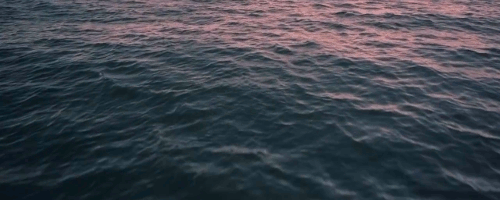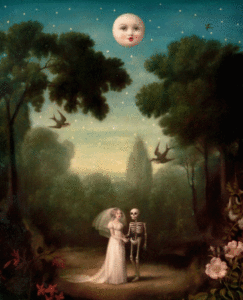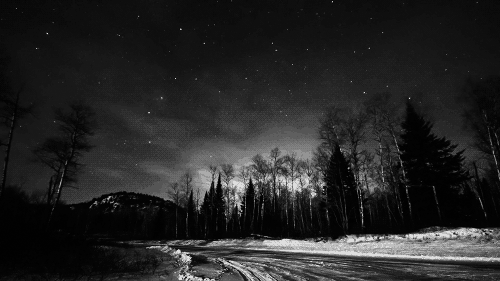Friends, I puzzled over this post for a while, and then decided to go with it. It’s a short poem. I hope you like it.

Aesthetic
Charles Tomlinson
Reality is to be sought, not in concrete,
But in space made articulate:
The shore, for instance,
Spreading between wall and wall;
The sea-voice
Tearing the silence from the silence.
***
I read this poem years ago. I know it was years ago, because I included it in a grad school project. We were to make an ebook of some sort. Keep in mind, this was the wild and heady days pre-Kindle, and to make an ebook meant, “Well, what do you think an ebook is? Something like a book, but on a screen? Maybe a PDF. It’s a PDF.” I chose as my subject, because we could choose whatever we wanted, “Poetry That Doesn’t Suck.”
I am an ornery person.
I chose something like 8 poems that I had (mostly) read in college and (absolutely) liked, alternating between a brief introduction and the poem itself. With some sort of illustration, and typography that I now wish I’d spent more time on.
This poem was in there. I know, because I still have the PDF, which I keep both secret and safe. My explanation of its inclusion was very non-existent: “You either get it or you don’t.” This exemplifies my understanding of poetry, or rather my frustration with my understanding, in that it’s not something I could understand or articulate basically at all. It’s like that judge with porn.
I don’t know what it is, exactly, I just know it when I see it.
This is a poem.
***
Step one in trying to figure out a poem: Is it using a form?
Nope.
Step two: Rhymes?
Nope.
Step three: Gosh, I don’t know. The other sounds, I guess, alliteration and assonance and all that?
Hm. Okay.
“The sea-voice / Tearing the silence from the silence.” (Which has a whole new connotation post-Matt Smith Doctor Who.) There’s actually quite a lot of that sibilance in this poem.
The first line also has the vowel sound, I think — sought, not, concrete. Second line, I suppose, repeats that space/made sound.
It’s cheating to call it out when the entire word is repeated; that’s probably something else entirely. Just repetition. Wall and wall, silence and silence. I like those repetitions. They form boundaries in nothing; shores don’t have walls, as a rule, but here they are, in this poem. The shore between walls. You also, as a rule, can’t do anything with silence, in regards to moving it around. It is a lack, rather than an object, and yet, here we are, letting the sea-voice tear it to bits and make it disappear, by sheer force of the sea-voice’s existence.
What does any of this have to do with reality? Or aesthetics?
***
Have you ever read the Tao Te Ching? I read it in college, like you do, and there are many parts of it I still think of occasionally. There is one verse, about emptiness, or negative space. Here is a small portion of it, from Ursula Le Guin’s translation:
Cut doors and windows
to make a room.
Where the room isn’t,
there’s room for you.
I apologize for using a verse to try to explain a verse. But that’s the neighborhood in my brain where this poem lives, though I never made the connection until now.
Even so, that’s not quite what this poem is pointing at. It’s sitting there, gesturing vaguely to the left of this idea. It’s not the absences that concern this poem. It’s what else that means, what else fills it, where these things touch and interact and talk to each other. But every time I read the poem again, I sense that all of this is wrong.
***
Aesthetic concerns itself with beauty. I mean the concept, not the poem, in this paragraph. Aesthetics is the study of, the contemplation of, what beauty is. That which is beautiful. The idea of beauty as formed by culture, and if it ever stands outside of culture. The creation of beauty, whether conscious or not, but I think, more often, the former.
Not in concrete, but in space, and shore, and sea-voice. Movement and sound, and in absences, and spaces created. Looking at those things (which I can’t quite explain) is a particular way to look at the reality around you and to define it as real (since reality is perception, even measuring is perception, even replication of measuring is perception so at some point you have to lay down the law and say this is reality) and choosing a way to look at things is to choose an aesthetic point of view. That is reality. Aesthetics are reality, to you.
***
This is the beautiful and terrible thing about poetry! I like ambiguity in poetry! I like double and triple meanings, suggestions via word choice, and something that seems to be missing, something you have to puzzle with. That frustration I have with being inarticulate about the genre is also what I like about it, and what I find definitive about it. For something to be easily explained, effortlessly unpacked, would make it less poetic.
The reason the poem exists as it is, is that to explain what it’s saying in any other form would take 50 pages and be impenetrable, possibly recursive. With a poem like this, either you’re smarter than me (not beyond the realm of possibility) and can explain it, or you just get it and nod. You like it. You can’t explain why.
You either get it or you don’t.
Maybe I got it right the first time.
 Why women are leading the death positive movement
Why women are leading the death positive movement

